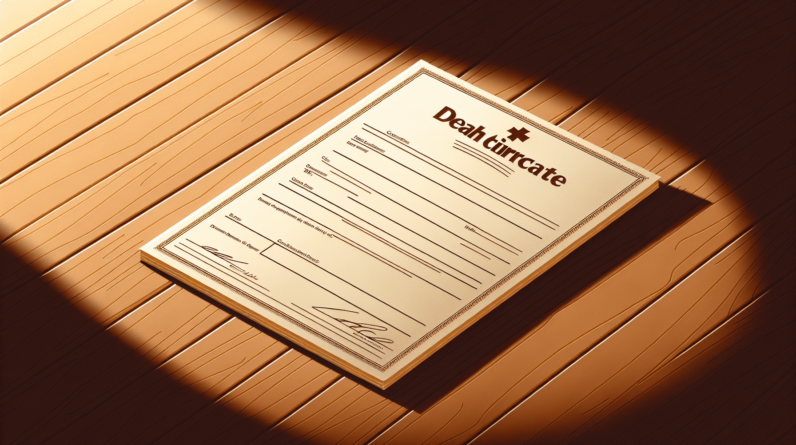
If you’re considering cremation as the final disposition for a loved one, a question that may arise is whether embalming is necessary before the process. Many people assume that embalming is a mandatory step, but that’s not always the case. According to my research, embalming serves the purpose of preserving the body and enhancing its appearance during a viewing or funeral service. However, when it comes to cremation, embalming is typically not required. From my experience, I’ve learned that policies regarding embalming vary depending on the local regulations and the specific circumstances surrounding the deceased. Our data show that in most cases, embalming is optional, allowing families to choose based on their personal preferences and cultural or religious beliefs.

What is Embalming?
Embalming is a process that involves the preservation and preparation of a deceased person’s body before burial or cremation. It is a common practice in many cultures and is typically performed by trained professionals known as embalmers. The main purpose of embalming is to slow down the natural process of decomposition, allowing the body to be presented in a more presentable state for funeral services and viewing.
Definition of embalming
Embalming is the art and science of preserving, sanitizing, and restoring the deceased’s body using various chemicals and techniques. This process involves removing bodily fluids and replacing them with embalming fluids, which help slow down decomposition and maintain the body’s natural appearance.
Purpose of embalming
The primary purpose of embalming is to preserve the body’s appearance and prevent decomposition during the viewing or funeral service. Embalming also aids in the disinfection of the body, reducing the risk of spreading infectious diseases. Additionally, embalming allows for cosmetic enhancements to be made, providing a more peaceful and natural appearance for loved ones to remember the deceased.
Legal Requirements
The legal requirements for embalming before cremation may vary depending on the jurisdiction. In some places, embalming is mandatory for certain situations, such as when transporting the body across state lines or for public health reasons. However, in many cases, embalming is not required by law unless a specific condition or situation arises.
Laws and regulations regarding embalming before cremation
According to my research, there are specific laws and regulations regarding embalming before cremation. For example, in the United States, each state has its own laws that determine when embalming is required. These laws typically take into consideration factors such as the length of time between death and cremation, the condition of the body, and any cultural or religious beliefs.
Variances in different jurisdictions
It is important to note that the laws and regulations surrounding embalming vary between jurisdictions. While embalming may be required in some places, it may not be necessary in others. Therefore, it is vital to familiarize oneself with the specific requirements of the jurisdiction in which the cremation will take place.
When is Embalming Necessary?
The necessity of embalming before cremation depends on several factors, including the condition of the body, the length of time between death and cremation, religious and cultural beliefs, as well as personal preferences.
Condition of the body
From my experience, embalming is often necessary when the deceased’s body has undergone significant trauma, such as in cases of accidents or violent deaths. Embalming can help restore the body’s appearance and make it more presentable for viewing.
Length of time between death and cremation
According to industry standards, if there is a significant delay between the time of death and the cremation, embalming is typically recommended. This is because the body will naturally begin to decompose, and embalming can slow down this process, preserving the body for a longer period.
Religious and cultural beliefs
Religious and cultural beliefs play a significant role in determining whether embalming is necessary before cremation. In some cultures or religions, embalming is a customary practice, while in others, it may be discouraged or even prohibited. It is essential to respect and adhere to the deceased person’s religious and cultural beliefs when making the decision on embalming.
Personal preferences
Personal preferences also come into play when deciding whether embalming is necessary before cremation. Some individuals or their families may prefer to have the body embalmed to preserve its appearance and provide a more comforting experience for loved ones during the funeral service.
Benefits of Embalming
Embalming offers several benefits to both the deceased and their loved ones. These benefits include the preservation of the body, cosmetic enhancement, prevention of odor and decomposition, and enhanced funeral presentation.
Preservation of the body
Embalming helps slow down the natural process of decomposition, thereby preserving the body for an extended period. This allows loved ones to have more time for visitation and viewing of the deceased before cremation.
Cosmetic enhancement
A significant advantage of embalming is the ability to cosmetically enhance the deceased’s appearance. Skilled embalmers can use techniques such as restoring facial features or repairing bodily damage to make the body look more natural and serene.
Prevention of odor and decomposition
By removing and replacing bodily fluids, embalming significantly reduces the risk of odor and decomposition. This ensures a more comfortable and pleasant experience for family and friends during the funeral service and viewing.
Enhanced funeral presentation
Embalming provides an opportunity for a more visually appealing funeral presentation. The body can be dressed in clothing of choice, and physical features can be enhanced to create a peaceful and dignified final image for loved ones to remember.
Drawbacks of Embalming
While there are various benefits to embalming, it is essential to consider the drawbacks associated with this practice. These drawbacks include expense, environmental impact, and potential health risks for embalmers.
Expense
Embalming typically involves professional services, materials, and preservation techniques, making it a costly process. This additional expense can put a strain on funeral budgets, especially for families who are already facing financial challenges.
Environmental impact
The chemicals used in embalming fluids can have a negative impact on the environment. These chemicals can seep into the soil or water sources if not properly treated or disposed of, potentially harming ecosystems and wildlife.
Possible health risks for embalmers
Embalming is a profession that comes with certain health risks for embalmers themselves. Exposure to embalming fluids and other chemicals used during the process can pose health hazards, including respiratory issues and skin irritations. Embalmers must take appropriate safety precautions to minimize these risks.
Alternatives to Embalming
It is important to note that embalming is not the only option available before cremation. There are alternatives that offer different approaches to preserving the body or managing the decomposition process.
Refrigeration
Refrigeration is a common alternative to embalming. By keeping the body in a controlled environment at low temperatures, decomposition can be slowed down, allowing for an extended period before cremation. This option is often chosen when embalming is prohibited for religious or personal reasons.
Dry ice
Using dry ice is another alternative to embalming. Dry ice is placed inside the body or around it to maintain a low temperature and slow down decomposition. However, it is essential to follow proper safety guidelines when handling dry ice.
Natural decomposition
Allowing the body to undergo natural decomposition without any preservation techniques is an option chosen by some individuals or families. This approach respects the natural cycle of life and minimizes environmental impact. However, it may limit the time available for viewing and may not be suitable for all cultural or religious beliefs.
Immediate cremation
For those who prefer not to have a viewing or funeral service, immediate cremation without any preservation measures is an option. This allows for a more direct and expedited process, eliminating the need for embalming or any other preservation methods.
Important Considerations
When deciding whether to embalm a body before cremation, several important considerations come into play. These considerations include crematory requirements, transportation considerations, family and cultural expectations, as well as funeral cost considerations.
Crematory requirements
Different crematories may have specific rules or requirements regarding embalming. It is crucial to contact the chosen crematory and inquire about their policies to ensure compliance with their regulations.
Transportation considerations
If the deceased will be transported across state lines or to another jurisdiction, embalming may be legally required. Transportation regulations often dictate the need for embalming to ensure public health and safety during the transportation process.
Family and cultural expectations
Consideration should be given to the expectations of the family and the deceased’s cultural or religious beliefs. Open and respectful communication is crucial in understanding and accommodating these expectations.
Funeral cost considerations
The cost of embalming and related funeral services should also be taken into account. Families should assess their financial situation and determine if embalming is feasible within their budget. It is essential to remember that there are alternative options available that may be more financially viable.
Professional Recommendations
Seeking guidance from funeral directors and crematory professionals is highly recommended when making decisions related to embalming before cremation. These professionals have the knowledge and experience to provide valuable advice and insights.
Guidance from funeral directors and crematory professionals
Funeral directors and crematory professionals can guide individuals and families through the entire process, including explaining the benefits and drawbacks of embalming, discussing alternative options, and addressing any concerns or questions.
Industry standards and best practices
Funeral directors and crematory professionals follow industry standards and best practices, which can further inform decision-making. They are familiar with local regulations, cultural sensitivities, and religious customs, ensuring that the decisions made align with the wishes and beliefs of the deceased and their loved ones.
Personal Preferences
Ultimately, the decision regarding embalming before cremation should be based on personal preferences, values, and beliefs. It is crucial to consider the wishes of the deceased, as well as the needs and comfort of their loved ones.
Individual choices based on values and beliefs
Individuals may have specific values and beliefs that guide their decision on whether to embalm the body before cremation. Some may place importance on preserving the body’s appearance, while others may prioritize environmental considerations or cultural traditions.
Consultation with family and loved ones
Open and honest dialogue with family and loved ones is essential during this decision-making process. Consulting with them can provide valuable insights, perspectives, and support to help make an informed decision that respects everyone’s wishes and beliefs.
Conclusion
In conclusion, the decision of whether to embalm the body before cremation is a personal and multifaceted one that should be made with careful consideration. Weighing the factors discussed, such as the condition of the body, the length of time before cremation, religious and cultural beliefs, and personal preferences, will help individuals and families make an informed decision that honors the deceased and respects the wishes and beliefs of their loved ones. By seeking guidance from professionals, understanding industry standards, and engaging in open communication with family and loved ones, individuals can navigate this decision-making process with compassion and clarity.






